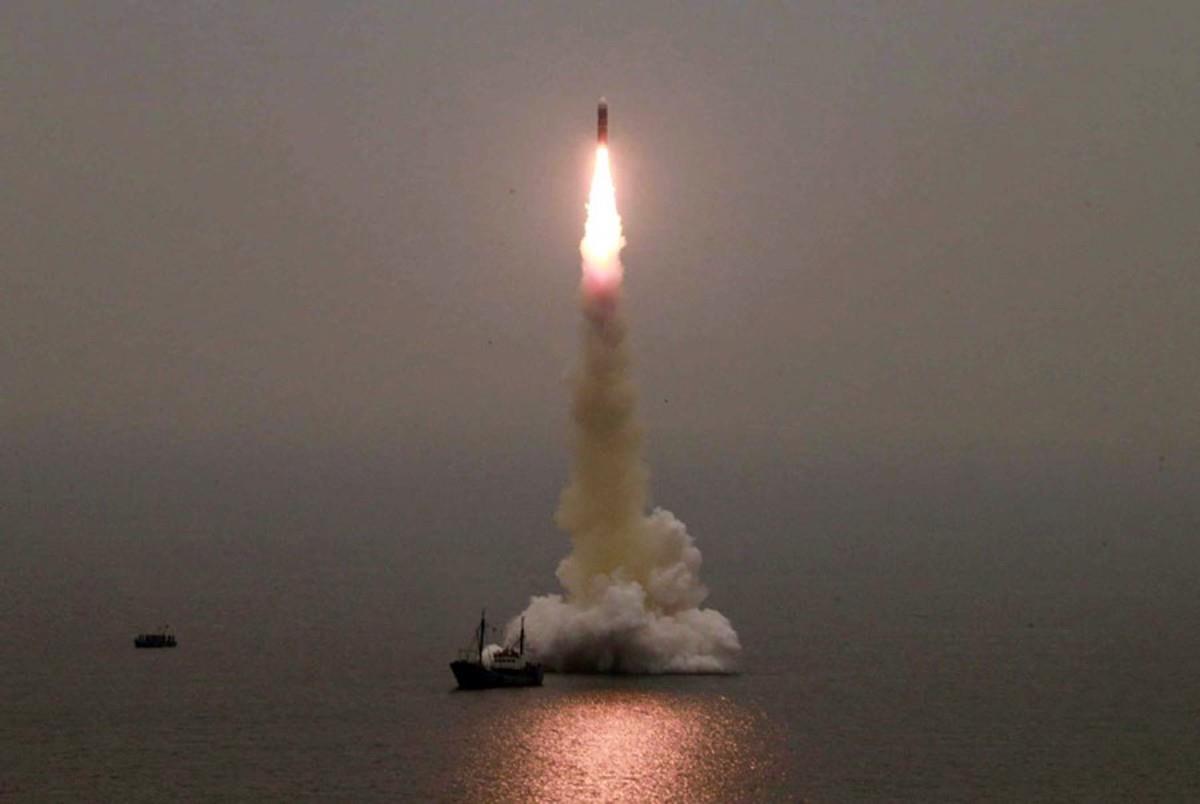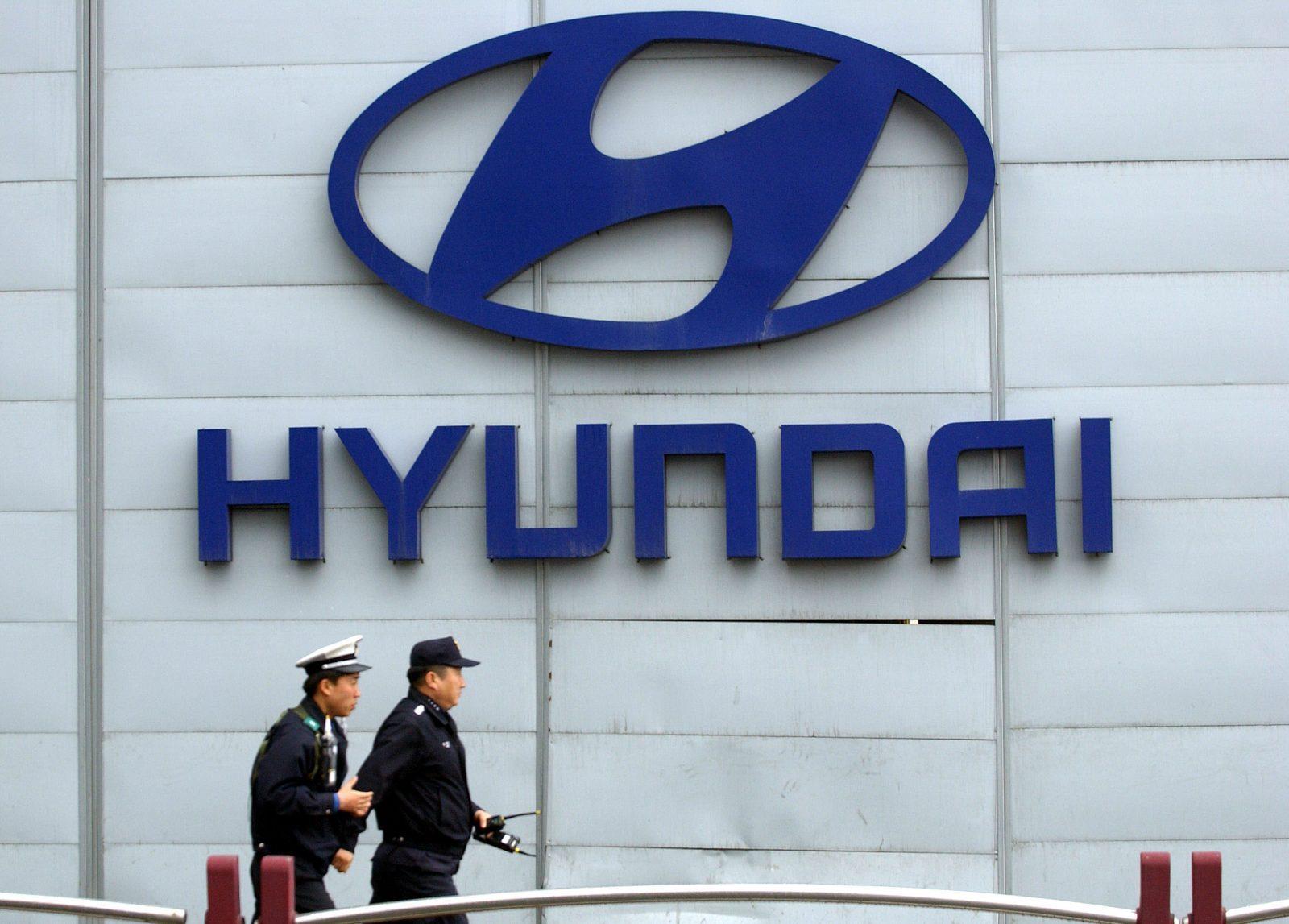(MENAFN- Asia Times)
SEOUL – North Korea ironically offered US Vice President Kamala Harris a soft landing in South Korea today (September 29) by planting security rather than a prickly trade dispute at the top of her Seoul agenda.
Harris arrived in the country after attending the state funeral for the late Japanese premier Shinzo Abe in Tokyo.
This morning, before her schedule – which included an afternoon trip to the DMZ, the frontline/frontier that divides the two Koreas – got into full swing, North Korea acted in typical fashion: It into waters off the east coast.
The double launch took place at a time when the USS Ronald Reagan aircraft carrier strike group and South Korean assets are exercising in the first high-profile joint naval drills held off the peninsula in five years.
Anti-submarine drills are reportedly the exercise's focus – a germane focus given not only the North's extensive submarine fleet but also given recent intelligence indications that the North may soon conduct the test of a submarine-launched ballistic missile.
Pyongyang watchers have also been concerned throughout the year that Pyongyang might detonate a nuclear device, which would its seventh.

North Korea has unveiled a new submarine-launched missile. Image: Facebook
But at a time when the biggest missile war ever fought is raging across Ukraine, North Korea's well-thumbed playbook of missile tests coinciding with US official visits and US military drills is starting to lose heft as an attention-grabbing tactic.
But South Korea's current concerns with the US are not limited to the security dimension of their alliance.
Yoon wags his finger A South Korean spokesperson made very clear that national concerns over US President Joe Biden's Inflation Reduction Act, or IRA, were aired during the 85-minute meet today between Harris and South Korean President Yoon Suk-yeol.
“President Yoon and Vice President Harris expressed serious concern about North Korea's recent ballistic missile launches and legalization of its nuclear force policy,” the presidential office's spokesperson .
The latter point was a reference to Pyongyang's“automatic nuclear retaliation” policy if its command and control assets are targeted, a policy made public earlier this month.
However, Seoul's concerns are very clearly not limited to Pyongyang's actions.
The spokesperson continued,“Vice President Harris said not only she, but also President Biden, are well aware of South Korea's concerns [about the IRA] and will look into it carefully in order to find ways to resolve South Korea's concerns in the process of the law's implementation.”
Korean automakers are livid that the IRA strips subsidies from electric vehicles manufactured outside the US. That means Korea-made EVs lose price competitiveness in America's lucrative market.
, however, was top-heavy on defense and other issues.
Only in the seventh paragraph of a nine-paragraph release did it state,“The Vice President underscored that she understood [South Korea's] concerns regarding the Act's tax incentives for electric vehicles, and they pledged to continue to consult as the law is implemented.”
Seoul officials and industry lobby groups insist that the IRA breaches the rules of both the World Trade Organization (WTO) and an intensely negotiated and re-negotiated Korea-US free trade agreement (FTA).
Adding insult to injury, South Korea's leading automaker, the Hyundai Motor Group pledged, during Biden's May trip to Seoul, investments worth US$10 billion in the US.

Hyundai has big investment plans for the US. Photo: AFP / Jung Yeon-Je
The Korean promise was at the time, with Biden saying,“These investments are part of a trend my administration…Manufacturing jobs are coming back to America.”
These economic factors, which are being watched closely by Korea's powerful automotive sector, made it critical for Yoon to get his point across to the US side today. But there are other issues in play, too.
Yoon especially needs to be seen to be doing his job competently by the general public after a series of optical, verbal and procedural gaffes that have taken a toll on his approval ratings. The latest took place in the US, where Yoon had traveled to attend the 77th UN General Assembly.
Yoon's woes, Korea Inc's ills
During that trip, Yoon was offered less than a minute of face time with Biden on the sidelines of a charity dinner. Still, despite the time limitation, and despite the fact that he was speaking through an interpreter, Yoon's office insisted that he had appraised Biden of Korea's IRA concerns.
If the narrow time window Yoon's American hosts granted him with Biden was a bad look, what happened next was worse.
Stalking off after his chat with Biden, Yoon gave vent to an under-his-breath, invective-laden rant in Korean about“sons of bitches” in an unspecified assembly blocking presidential plans. The rant was picked up on a Korean broadcaster's hot mic.
Though it remains in dispute whether Yoon was referring to the Korean National Assembly or the US Congress, the scoop was gleefully reported. It went immediately viral in Korea, leaving the president red-faced.
The storm has not yet blown over. The opposition-controlled National Assembly plans to rake Yoon over the coals

Biden and Yoon in a limited engagement. Image: Handout
It is just the latest blow to Yoon, whose approval ratings now hover around the 30% mark. But in the face of his domestic woes, his closest overseas ally is hardly offering him an easy ride.
The IRA's impact on Korea's auto exporters is not the only American issue irking Korean industry. As of last November, US policies preventing the export of advanced semiconductor-making equipment have stalled SK hynix's plan to upgrade its DRAM memory chip plant in Wuxi, China.
These US blows are impacting Korea Inc despite the“iron-clad alliance” the two capitals like to talk up, and despite the conservative Yoon being outspoken about US-style values such as freedoms, rights and democracy.
Such verbiage may be commonplace in US politics but is at odds with customary Korean presidential practice, which is to maintain a lower volume, thereby not irritating leading trade partner China.
Likewise, Yoon is unique among recent Korean leaders in seeking improved ties with Japan. That, too, fits into the US regional agenda: Washington has long sought to link Seoul and Tokyo into a tighter, trilateral security agreement.
According to the White House statement, Harris and Yoon also discussed Taiwan. That issue has little resonance for South Korea, where the defense posture is largely aimed north and where there is little enthusiasm for pricking Chinese sensitivities.
Follow this writer on Twitter @ASalmonSeoul
MENAFN29092022000159011032ID1104945893